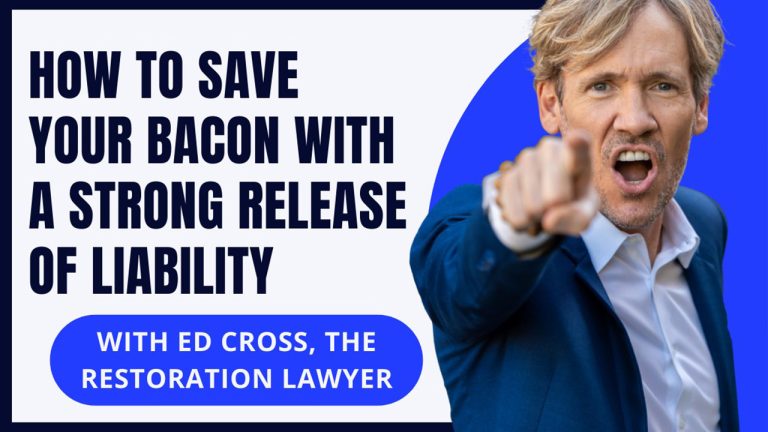Jordan v. Allstate Ins. Co.: Failure to Conduct a Full, Fair, and Thorough Investigation on a Claim?
Most insurance policies contain terms that are hard to understand, and the policies are often written ambiguously and confusingly. Besides providing coverage, policies also assign responsibilities to the insured and duties to the insurer. One duty is the implied covenant of good faith and fair dealing. A moniker for the breach of this covenant is insurance bad faith. Jordan v. Allstate Ins. Co. centers around insurance bad faith arising from a failure to conduct a full, fair, and thorough claim investigation. An insurer cannot reasonably and in good faith deny payments to its insured without fully investigating the grounds for its denial. Breach of this covenant may give rise to contract damages, attorneys’ fees, and punitive damages (in some states).
Key points from Jordan:
- An insurer must give at least as much consideration to the insured’s interests as it gives its own interests.
- An insurer must fully investigate all possible bases that might support the insured’s claim.
- A claim for bad faith is only triable so long as the policy was determined to actually cover the loss.
- An insurer’s reasonable yet erroneous policy interpretation does not preclude a claim for bad faith arising from insurer claims handling activities, such as the failure to conduct a full, fair, and thorough investigation of the claim.
In this case, the policyholder (Jordan) filed suit against Allstate, the insurer, for recovery for the collapse of a portion of her home under a policy that expressly provided “additional coverage: for any loss due to an “entire” collapse caused by “hidden decay,” but with an exclusion for any loss caused by “wet or dry rot.” The insurer interpreted that the loss was excluded from coverage because it was caused by “wet or dry rot.” Jordan interpreted that hidden decay caused the collapse of her home and should be covered.
The court concluded that the policy language relating to the “wet or dry rot,” exclusion and the additional coverage provided under the collapse exception were contradictory and confusing, thus creating ambiguity. To resolve policy ambiguity, courts look to the insured’s objectively reasonable expectations and construe policy language against the insurer and in favor of the insured. The trial court decision, in this case, was reversed.
The court of appeals determined that Allstates reasonable yet erroneous interpretation of the policy does not preclude a claim for bad faith arising from its claims handling activities, particularly its failure to conduct a full, fair, and thorough investigation of the claim. For an insurer to fulfill its obligations under the implied covenant of good faith and fair dealing, an insurer must give at least as much consideration to the interests of the insured as it gives its own interests.
The court went on to evaluate the facts of the case; a few of those being:
- Despite the fact that internal correspondence about the possibility that the “collapse” coverage might apply to Jordan’s loss, Allstate never communicated anything to Jordan about this coverage potential until Jordan’s attorney finally received a copy of the policy (which he had been requesting) and noted the collapse provision.
- Despite the recommendation of its own experts and the recommendation of Mr. DeLaCruz (Jordan’s fungus expert) that a structural engineer be retained by Allstate to inspect the property, Allstate failed to do so. Allstate’s adjuster stated she simply disregarded the recommendation out of hand.
- Allstate contended that it did not need to send out a structural engineer because its experts, Pacific Health & Safety (PH & S), did not describe any areas of “collapse” to be further inspected. However, Allstate never asked PH & S to determine whether there had been a collapse. The only request that is documented in the file is a request for PH & S “to confirm poria.” Allstate’s adjuster, Tina Bulmer, specifically stated in her deposition that she did not hire PH & S to make any recommendations regarding “structural engineering.”
- Bulmer stated that she did not hire a structural engineer because Jordan had not provided any proof of actual collapse. Yet, Jordan had not been advised that the policy provided coverage for actual collapse until several months into the claim even though she and/or her attorney had been requesting copies of the policy.
- Although Jordan, herself, was aware from the outset that parts of her home were collapsing, she was never interviewed by any adjuster for Allstate.
- Bulmer refused to interview Jordan expert DeLaCruz for the sole stated reason that DeLaCruz had been hired by the insured.
The court concluded that this case had to be sent back to trial court. Jordan needs to prove that the “entire” building collapsed; thus, her loss is covered under the policy, and if that is proven, she will be able to argue bad faith. A claim for bad faith is only triable so long as the policy was determined to actually cover the loss.
Is the carrier committing bad faith? What can you do?
As you can see from the Jordan case, this can be a complicated question. The short answer is if you believe your insurance company is treating you unreasonably and unfairly, you should probably seek the advice of an experienced insurance bad faith lawyer.
To learn more about insurance bad faith, read The Restoration Book on Collections. This book is the ultimate guide to maximizing restoration receivables, often by avoiding litigation.
Some of the topics covered are overcoming adjuster lowballing, inappropriate use of standardized prices, and interference from third-party consultants and bill reviewers.
Jordan v. Allstate Ins. Co., supra, 148 CA4th at 1069, 1072-1073, 56 CR3d at 316, 319-320






